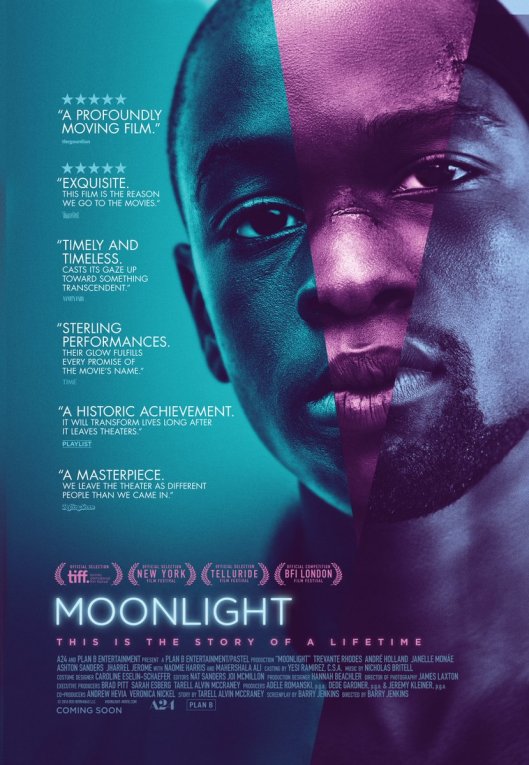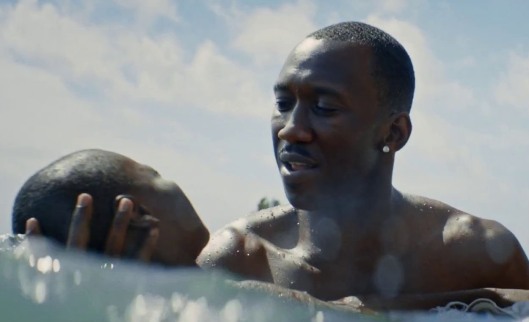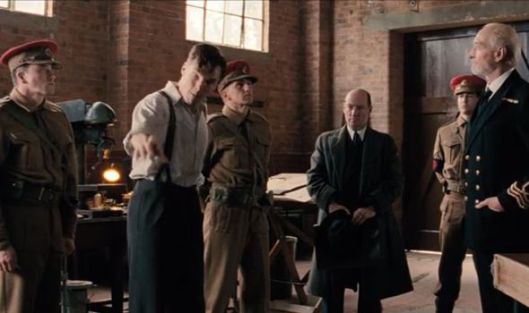Enemies Closer (2013) / D: Peter Hyams / 85m
Cast: Tom Everett Scott, Jean-Claude Van Damme, Orlando Jones, Linzey Cocker, Christopher Robbie, Zachary Baharov, Dimo Alexiev, Kris Van Damme

Rating: 5/10 – when a plane carrying drugs crash lands in the waters off King’s Island it’s up to ranger (and ex-Navy Seal) Henry Taylor (Scott) to stop mercenary Xander (Van Damme) and his men from retrieving the cargo; a bone-headed action movie with a flamboyant performance from Van Damme, Enemies Closer is saved from complete disaster by Hyams’ confident direction and cinematography, a script that often seems aware of how silly it all is, and an earnest turn from Scott that eschews the usual macho heroics expected from something that, in essence, is Die Hard on a Small Island.
From Hell to the Wild West (2017) / D: Rene Perez / 77m
Cast: Robert Kovacs, Alanna Forte, Charlie Glackin, Karin Brauns, Robert Bronzi, Sammy Durrani

Rating: 3/10 – a masked serial killer sets up home in a ghost town in California, until a Marshall (Kovacs) and a bounty hunter (Bronzi) team up to end his reign of terror; a low budget horror with an interesting premise, From Hell to the Wild West is let down by poor production values, terrible acting, the kind of Easter eggs that stick out like a sore thumb (Bronzi was a stunt double for Charles Bronson, and his character name is Buchinski), a threadbare plot, and occasional stabs at direction by Perez – all of which make it yet another horror movie that’s a chore to sit through.
Tremors: A Cold Day in Hell (2018) / D: Don Michael Paul / 98m
Cast: Michael Gross, Jamie Kennedy, Tanya van Graan, Jamie-Lee Money, Kiroshan Naidoo, Keeno Lee Hector, Rob van Vuuren, Adrienne Pearce, Francesco Nassimbeni, Paul de Toit

Rating: 4/10 – Burt Gummer (Gross) and his son, Travis (Kennedy), are called in when Graboid activity is discovered in the Canadian tundra, and threatens a research facility; number six in the series, Tremors: A Cold Day in Hell marks a serious downturn in quality thanks to dreary plotting, cardboard characters, and absentee suspense, and supports the notion that the franchise should be put to bed (even though there’s a TV series on the horizon), something that not even the continued presence of Gross can mitigate against, or the producers.
The Debt Collector (2018) / D: Jesse V. Johnson / 96m
Cast: Scott Adkins, Louis Mandylor, Vladimir Kulich, Michael Paré, Tony Todd, Rachel Brann, Esteban Cueto, Jack Lowe

Rating: 5/10 – a financially strapped martial arts instructor, French (Adkins), takes on a job as a debt collector for a local gangster, and finds himself elbow deep in unexpected violence and the search for someone who may or may not have swindled one of the debtors on his list; though breezy and easy-going, and replete with fight scenes designed to show off Adkins prowess as an action hero, The Debt Collector gets bogged down by its neo-noir-style script, and a plethora of supporting characters that come and go without making an impact, or contributing much to the story.
Air Hawks (1935) / D: Albert S. Rogell / 68m
Cast: Ralph Bellamy, Tala Birell, Wiley Post, Douglass Dumbrille, Robert Allen, Billie Seward, Victor Kilian, Robert Middlemass, Geneva Mitchell, Wyrley Birch, Edward Van Sloan

Rating: 6/10 – a small-time independent airline finds itself being sabotaged by a rival airline in its attempts to win a transcontinental contract from the government; a mash-up of aviation drama and sci-fi elements (Van Sloan’s character operates a “death ray” from the back of a truck), Air Hawks is the kind of sincerely acted and directed nonsense that Hollywood churned out by the dozens during the Thirties, but it’s enjoyable nonetheless, with eager performances from Bellamy and Kilian, nightclub scenes that don’t feel out of place at all(!), and a knowing sense of how silly it all is.
Supercon (2018) / D: Zak Knutson / 100m
Cast: Russell Peters, Maggie Grace, Ryan Kwanten, Brooks Braselman, Clancy Brown, John Malkovich, Mike Epps, Caroline Fourmy

Rating: 3/10 – at a TV/artists/superhero convention, a group of friends decide to rob the promoter and at the same time, stick it to an overbearing TV icon (Brown) as payback for the way they’ve been treated; somewhere – though buried deep – inside the mess that is Supercon is a great idea for a movie set at a fantasy convention centre, but this dire, uninspired comedy isn’t it, lacking as it does real laughs, any conviction, and consistent direction, all things that seemed to have been “refused entry” at the earliest stages of production.
The 15:17 to Paris (2018) / D: Clint Eastwood / 94m
Cast: Spencer Stone, Alex Skarlatos, Anthony Sadler, Judy Greer, Jenna Fischer, Ray Corasani, P.J. Byrne, Thomas Lennon, William Jennings, Bryce Gheisar, Paul-Mikél Williams

Rating: 6/10 – the true story of how three friends, two of whom (Stone, Skarlatos) were American servicemen, tackled and overcame a gun-toting terrorist on a train bound for Paris from Amsterdam in August 2015; with the terrorist incident being dealt with in a matter of minutes, The 15:17 to Paris has to pad out its running time, and does so by showing how the three friends met and grew up, and their progress through Europe until that fateful train ride, a decision that works well in introducing the trio, but which makes this in some ways more of a rites of passage-cum-travelogue movie than the incisive thriller it wants to be.
The Mask of Medusa (2009) / D: Jean Rollin / 73m
Original title: Le masque de la Méduse
Cast: Simone Rollin, Bernard Charnacé, Sabine Lenoël, Thomas Smith, Marlène Delcambre

Rating: 5/10 – a retelling of the classical story of the Gorgon presented in two parts; Rollin’s final project, The Mask of Medusa is much more of an experimental movie than you’ll find amongst his usual work, but it has a starkly defined approach that allows the largely idiosyncratic dialogue room to work, and the austere nature of the visuals has an unnerving effect that works well at times with the narrative, but it’s also an experience that offers little in the way of intellectual or emotional reward for the viewer, which makes this something of a disappointment as Rollin’s last movie.
Jeepers Creepers 3 (2017) / D: Victor Salva / 101m
Cast: Stan Shaw, Gabrielle Haugh, Brandon Smith, Meg Foster, Jordan Salloum, Chester Rushing, Jason Bayle, Ryan Moore, Jonathan Breck

Rating: 3/10 – the Creeper targets anyone who comes near the truck he collects his victims in, as well as the members of a family he terrorised originally twenty-three years before; set between the first and second movies, Jeepers Creepers 3 suffers from tortuous sequelitis, with Salva stretching the franchise’s time frame out of whack, and failing to provide viewers with the scares and thrills seen in the original movie, something that, though predictable, doesn’t bode well for the already in gestation Part Four.
Navy Blue and Gold (1937) / D: Sam Wood / 94m
Cast: Robert Young, James Stewart, Florence Rice, Billie Burke, Lionel Barrymore, Tom Brown, Samuel S. Hinds, Paul Kelly, Barnett Parker, Frank Albertson

Rating: 7/10 – three new recruits to the United States Naval Academy (Young, Stewart, Brown) battle their own individual problems, as well as trying to make the grade; a patriotic flag waver of a movie, and cinematic recruitment drive for the US Navy, Navy Blue and Gold features likeable performances from all three “cadets”, the usual soap opera elements to help keep the plot ticking over, and Barrymore doing yet another variation on his crusty old man persona, all of which, along with Wood’s erstwhile direction, ensure the movie is pleasant if undemanding.
Bedelia (1946) / D: Lance Comfort / 90m
Cast: Margaret Lockwood, Ian Hunter, Barry K. Barnes, Anne Crawford, Beatrice Varley, Louise Hampton, Jill Esmond

Rating: 7/10 – a woman (Lockwood), married for the second time, comes under the suspicion of an artist (Barnes) who believes her husband (Hunter) is likely to end up dead – just as her first husband did; a clever piece of melodrama from the novel by Vera Caspary, Bedelia doesn’t quite ratchet up the suspense as it goes along, but it does offer a fine performance from Lockwood as a femme with the emphasis on fatale, and occasional psychological details that help keep Bedelia herself from appearing evil for evil’s sake.
Peter Rabbit (2018) / D: Will Gluck / 95m
Cast: James Corden, Rose Byrne, Domhnall Gleeson, Margot Robbie, Sam Neill, Elizabeth Debicki, Daisy Ridley, Sia, Colin Moody

Rating: 7/10 – when the farmer (Neill) who continually tries to stop Peter Rabbit (Corden) and his friends stealing from his vegetable garden drops dead, so begins a war of attrition with his grandnephew (Gleeson); as a modern updating of Beatrix Potter’s beloved characters, purists might want to stay away from Peter Rabbit, but this is a colourful, immensely charming (if occasionally cynical) tale that is both funny and sweet, and which falls just the right side of being overwhelmingly saccharine.
Insidious: The Last Key (2018) / D: Adam Robitel / 103m
Cast: Lin Shaye, Leigh Whannell, Angus Sampson, Kirk Acevedo, Caitlin Gerard, Spencer Locke, Josh Stewart, Tessa Ferrer, Bruce Davison, Javier Botet

Rating: 6/10 – Elise Rainier (Shaye) is forced to come face to face with a demon from her childhood, as it targets members of her brother’s family; another trip into the Further reveals signs of the franchise beginning to cannibalise itself in the search for newer, scarier installments, though at least Insidious: The Last Key has the ever reliable Shaye to add a layer of sincerity to the usual hokey paranormal goings on, and one or two scares that do actually hit the mark, but this should be more way more effective than it actually is.
Deadpool 2 (2018) / D: David Leitch / 119m
Cast: Ryan Reynolds, Josh Brolin, Morena Baccarin, Julian Dennison, Zazie Beetz, T.J. Miller, Leslie Uggams, Karan Soni, Brianna Hildebrand, Stefan Kapicic, Eddie Marsan, Rob Delaney, Lewis Tan, Bill Skarsgård, Terry Crews

Rating: 8/10 – everyone’s favourite Merc with a Mouth is called upon to protect a teenage mutant (Dennison) with pyro abilities from a time-travelling half-man, half-cyborg called Cable (Brolin); any worries about Deadpool 2 not living up to the hype and being a letdown are dispensed with by more meta jokes than you can shake a pair of baby legs at, the same extreme levels of bloody violence as the first movie, and the opening title sequence, which gleefully advertises the fact that it’s directed by “one of the directors who killed the dog in John Wick”.
Vapors (1965) / D: Andy Milligan / 32m
Cast: Robert Dahdah, Gerard Jacuzzo, Hal Sherwood, Hal Borske, Richard Goldberger, Larry Ree

Rating: 7/10 – set in a bath house for homosexuals, first-timer Thomas (Jacuzzo) ends up sharing a room with married man, Mr Jaffee (Dahdah), who in between interruptions by some of the other patrons, tells him a disturbing personal story; an absorbing insight into both the freedom of expression afforded gay men by the confines of a bath house, as well as the personal stories that often have a tragic nature to them, Vapors is a redolent and pungent exploration of a milieu that few of us will have any experience of, and which contains content that is still relevant today.
Solo: A Star Wars Story (2018) / D: Ron Howard / 135m
Cast: Alden Ehrenreich, Emilia Clarke, Woody Harrelson, Paul Bettany, Joonas Suotamo, Donald Glover, Phoebe Waller-Bridge, Thandie Newton, Jon Favreau, Linda Hunt

Rating: 6/10 – Han Solo (Ehrenreich), a pilot for the Imperial Empire, breaks away from the Empire to work with smuggler Tobias Beckett (Harrelson) in an attempt to rescue his lover Qi’ra (Clarke) from their home planet – but it’s not as easy as it first seems; a movie that spends too much time reminding audiences that its main character has a chequered history, Solo: A Star Wars Story is a series of admittedly entertaining action sequences in search of a coherent story to wrap around them, but hamstrung by a bland lead performance, and another round of secondary characters you can’t connect with.
Prankz. (2017) / D: Warren Dudley / 71m
Cast: Betsy-Blue English, Elliot Windsor, Ray d James, Isabelle Rayner, Sharon Drain

Rating: 3/10 – six vlogs, two of which were never uploaded, show a footballer (Windsor), his girlfriend (English), and his best friend (James), playing pranks on each other, until a planned prank backfires with horrific consequences; an object lesson in how not to make a found footage horror movie, Prankz. is low budget awfulness personified, and as far from entertaining, or scary, or credible, or worth your time as it’s possible to be, which is the only achievement this dire movie is able to claim.
Ibiza (2018) / D: Alex Richanbach / 94m
Cast: Gillian Jacobs, Vanessa Bayer, Phoebe Robinson, Michaela Watkins, Richard Madden, Nelson Dante, Anjela Nedyalkova, Jordi Mollá

Rating: 3/10 – tasked with clinching a business deal in Barcelona, Harper (Jacobs) not only takes along her two best friends (Bayer, Robinson), but falls for a DJ (Madden) whose next gig is in Ibiza – where she determines to find him, even if it puts the deal in jeopardy; a romantic comedy that is neither romantic or funny – desperate is a more appropriate description – Ibiza is so bad that it’s yet another Netflix movie that you can’t believe was ever given a green light, or that Will Ferrell and Adam McKay stayed on board as producers once they saw the script (or what passes for one).

















































